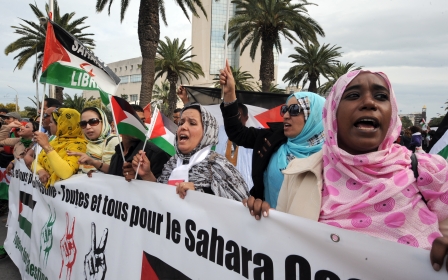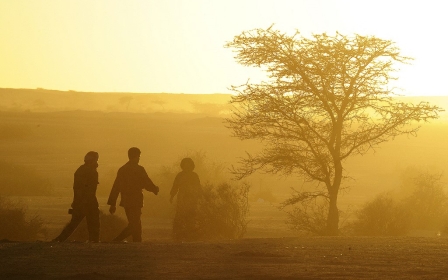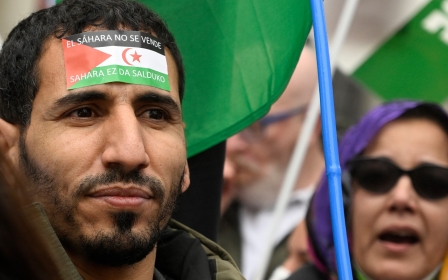Morocco’s politicians hail Israeli Western Sahara move as 'fruit of normalisation’
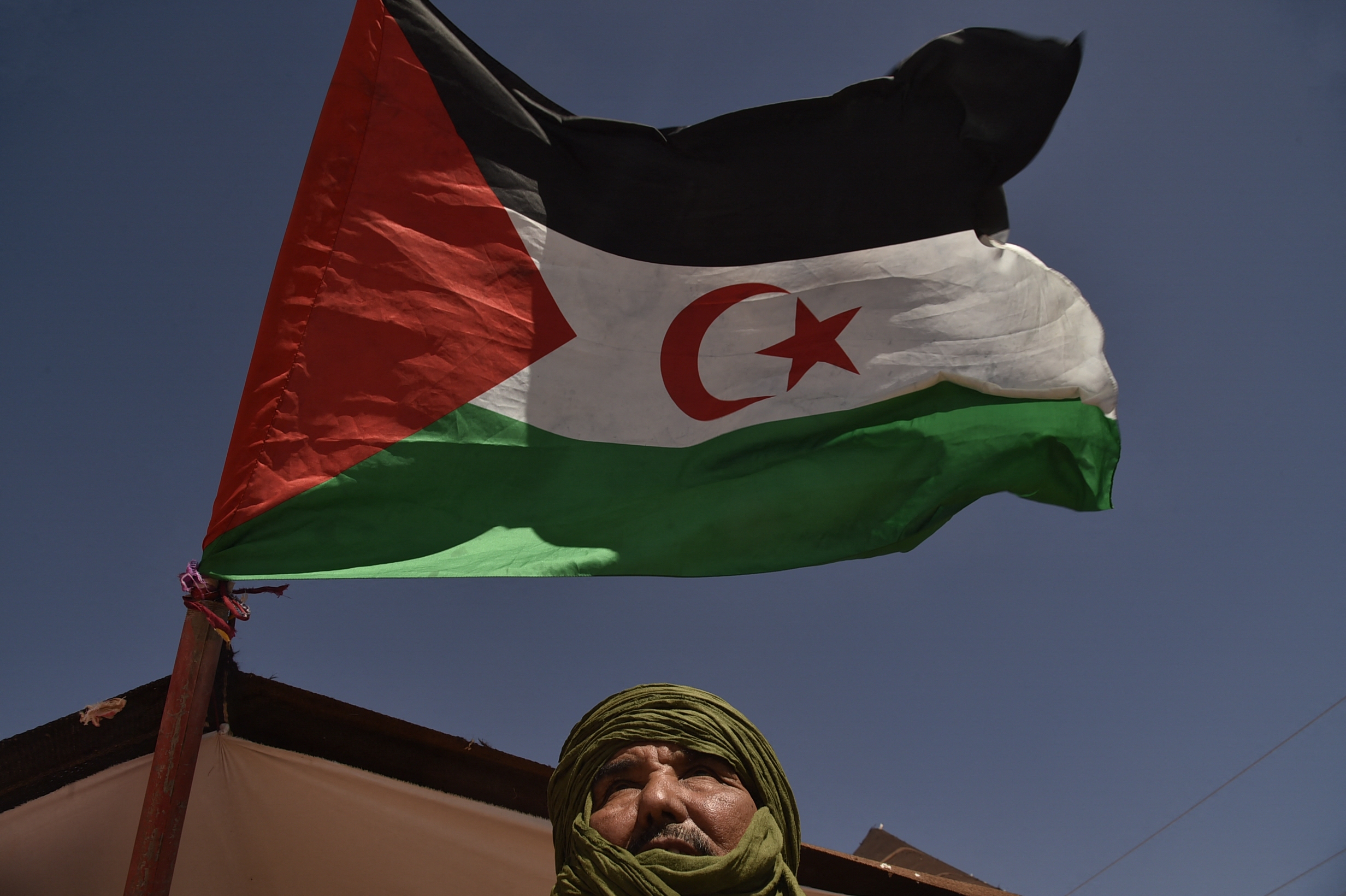
In Morocco's halls of power, officials are not hiding their enthusiasm following Israel's recognition of Morocco's sovereignty over Western Sahara. In fact, some have been waiting for the news since December 2020, when Morocco and Israel normalised relations.
“We have been waiting for this recognition... and some were beginning to doubt Israel's willingness to support us on the Sahara issue," said a member of the Authenticity and Modernity Party (PAM), who wished to remain anonymous.
"I think a lot of things will change with this decision, as other powers will now want to follow in the footsteps of the United States, Spain and Israel."
The US agreed to recognise Morocco's sovereignty in Western Sahara in exchange for Rabat's normalisation of ties with Israel. Spain followed suit in March 2022, in exchange, in particular, for greater migration control from Morocco.
Within the three parties that form the majority in the Moroccan parliament - the liberals of PAM and the National Rally of Independents (NRI), and the conservatives of Istiqlal - many have been vocal in praising Israel's decision, which was communicated in a letter from Israeli Prime Minister Benjamin Netanyahu to King Mohammed VI on Monday.
New MEE newsletter: Jerusalem Dispatch
Sign up to get the latest insights and analysis on Israel-Palestine, alongside Turkey Unpacked and other MEE newsletters
Led by Prime Minister Aziz Akhannouch, the NRI hailed "the wisdom" of the king in managing the Western Sahara issue, resulting in "a group of countries explicitly supporting the legitimacy and credibility of the Moroccan proposal, the latest of which is the Israeli position".
'I think a lot of things will change with this decision as other powers will now want to follow in the footsteps of the US, Spain and Israel'
- Authenticity and Modernity Party member
The Istiqlal party also expressed "its great satisfaction with this important decision", and welcomed Israel's consideration of opening a consulate in Dakhla, a city located in the Western Sahara.
According to the Spanish news agency EFE, Morocco plans to elevate the Israeli Liaison Office in Rabat to the rank of embassy.
In the same statement, Istiqlal reiterated its support to the Palestinians in their "struggle to realise their just and legitimate demands and to establish their independent, fully sovereign and viable Palestinian state, with East Jerusalem as its capital".
Morocco's official position is in support of a two-state solution to the Israel-Palestine conflict and the establishment of a Palestinian state based on the 1967 borders, with occupied East Jerusalem as its capital.
Silence of the JDP
The only figures not to join the elation on Morocco's political scene are the Islamists of the Justice and Development Party (JDP), whose leader, Abdelilah Benkirane, is usually very active on social media.
Silence and uneasiness have reigned over the party since Monday. No press releases have been issued by the party or any articles on the subject published on its media website, even as the news was being relayed by local and international press.
“The subject is sensitive. I think everyone is waiting for a reaction from Benkirane. It is all the more embarrassing since it was our party that signed the tripartite agreement [between Morocco, the United States and Israel],” a party official told Middle East Eye, asking for anonymity.
At the time, then-Prime Minister Saad-Eddine El Othmani, a member of the JDP, had been under pressure to sign the normalisation agreement, which had earned him widespread criticism from Arab Islamists, and accusations that he had abandoned the Palestinian cause for political ends.
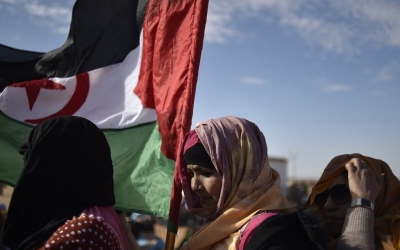
“For me, this is a logical continuation of the normalisation with Israel, the agreement with whom had led to the recognition of the Moroccanness of the Sahara. The question is: how will this support materialise internationally?" the official said.
A former JDP official told MEE that the party had signed normalisation in the interest of Morocco above all else.
"The decision, which is the fruit of this agreement, is therefore natural. And Morocco's position on the Palestinian issue has not changed, but the subject is embarrassing for Benkirane,” said the former official. Benkirane has repeatedly criticised normalisation with Israel.
In March, the JDP "deplored" recent positions taken by the Moroccan foreign minister, Nasser Bourita, in which he "seems to defend the Zionist entity in certain African and European meetings, at a time when the occupation continues its criminal aggression against our Palestinian brothers", the party said in reference to the military and settler raids in the occupied West Bank.
The royal cabinet denounced the JDP statement, calling it "irresponsible overstepping".
'Expropriation of tribal lands'
The delay in the official Israeli recognition of Western Sahara as Moroccan was notably slow - two years after the normalisation deal - and had begun to annoy some in political circles, such as Bilal Talidi, JDP member and former columnist for Attajdid.
In an article published in July, Talidi reproached Israel for having failed in its commitments towards the kingdom.
Meanwhile, political scientist Aziz Chahir believes, "The planned delay in Israel's decision would come to be indicative of the pressure Israel has put on Morocco in order to obtain 'complete normalisation' in the long term.
“Mohammed VI’s government gave in to Israel’s determination to have a strategic military position in Western Sahara and North Africa."
Chair highlighted how, in 2022, in the Guelmim, Oued Noun and Sakia El Hamra regions, parts of which are located in the Western Sahara, people protested against "the expropriation of tribal lands to launch renewable energy projects" that are spearheaded by Israel and the United Arab Emirates.
Chahir believes the timing speaks of "the American desire to thwart Algeria's manoeuvres to strengthen its alliance with China and Russia", referring to Algerian President Abdelmadjid Tebboune's recent visits to Beijing and Moscow.
This article was originally published on Middle East Eye's French page.
Middle East Eye delivers independent and unrivalled coverage and analysis of the Middle East, North Africa and beyond. To learn more about republishing this content and the associated fees, please fill out this form. More about MEE can be found here.



